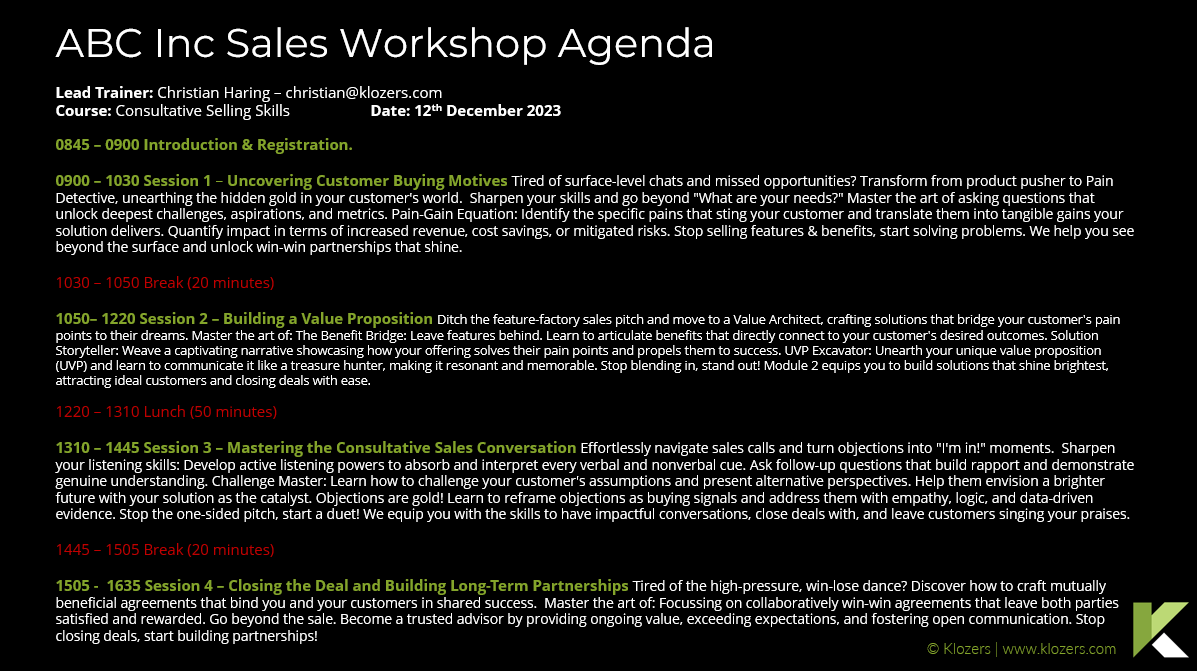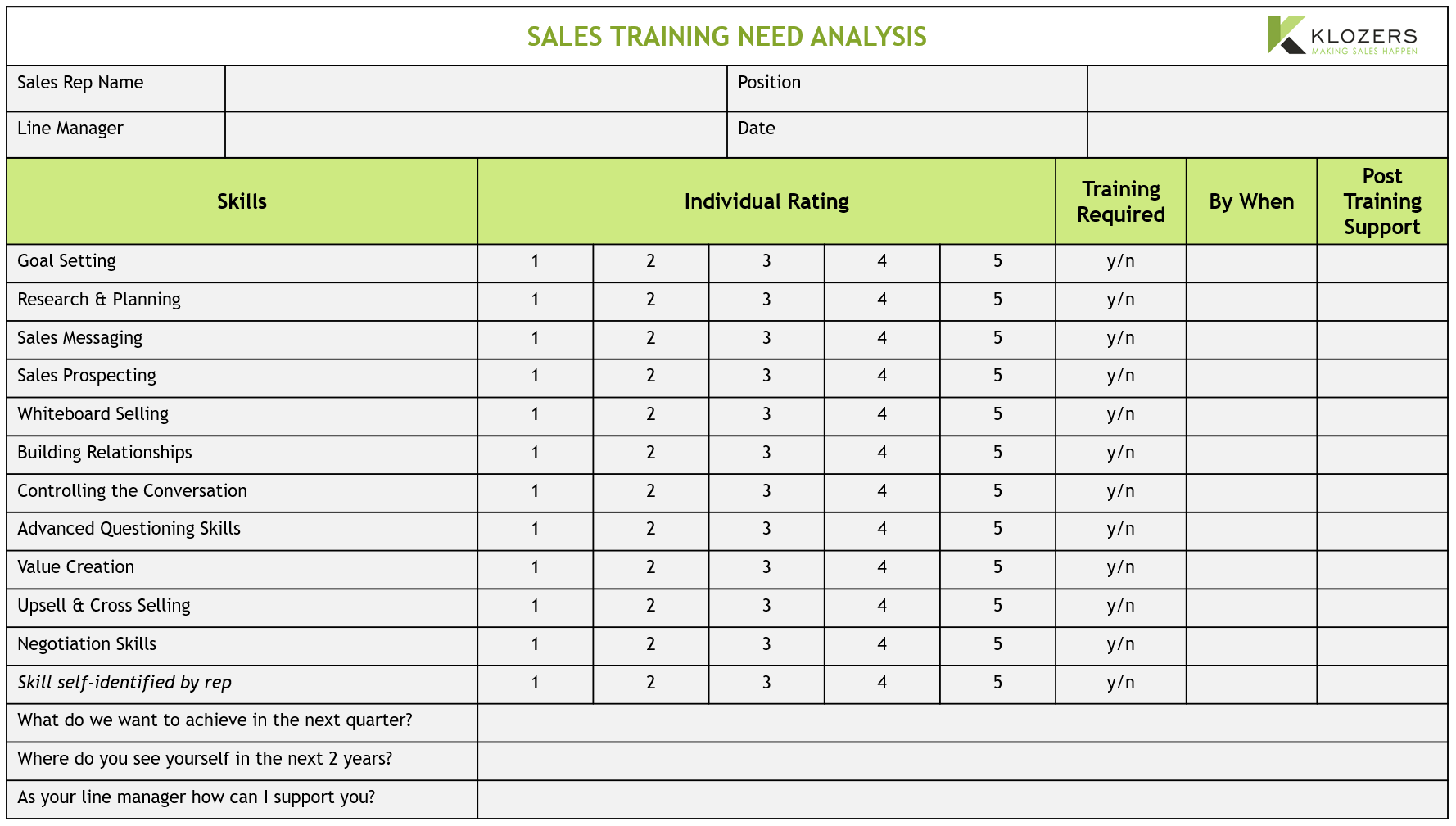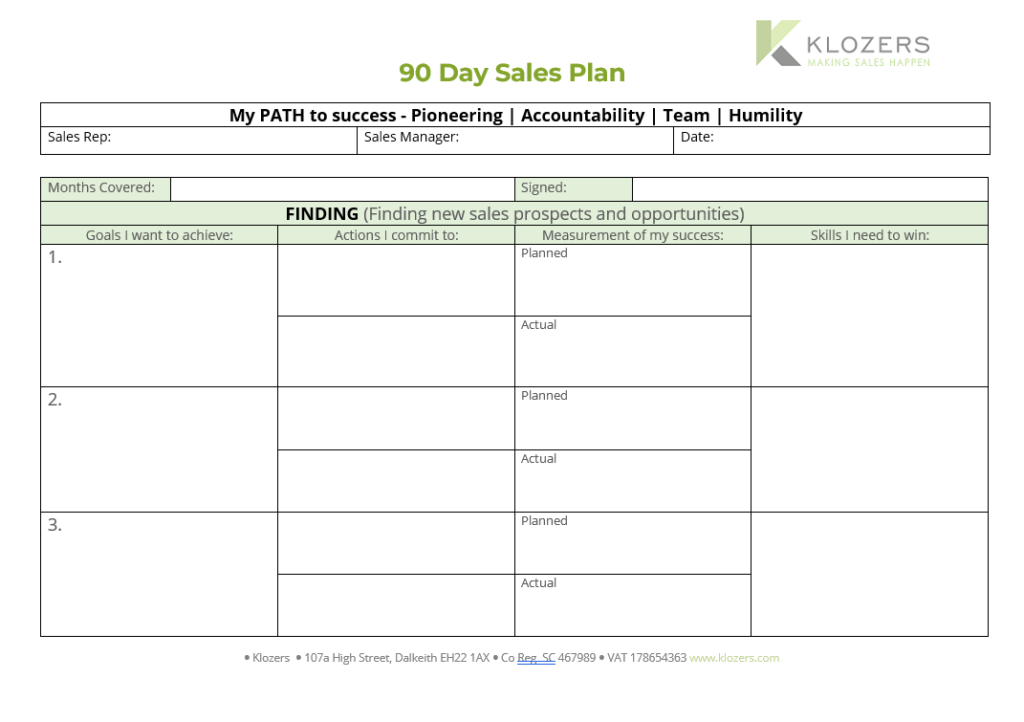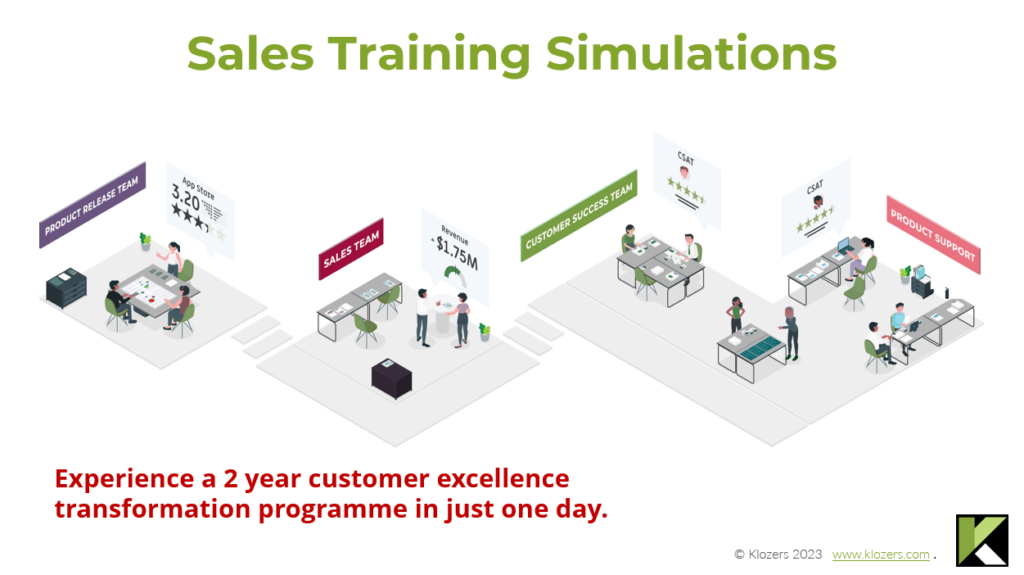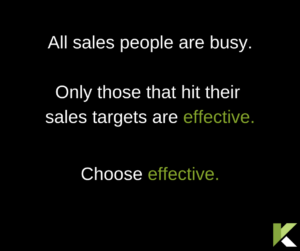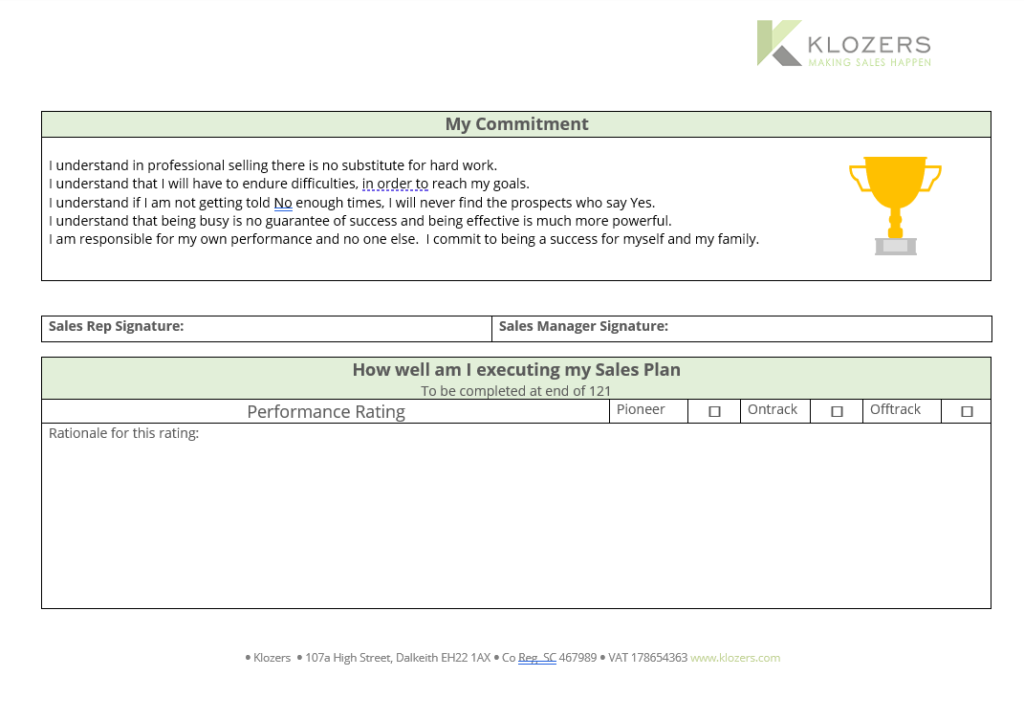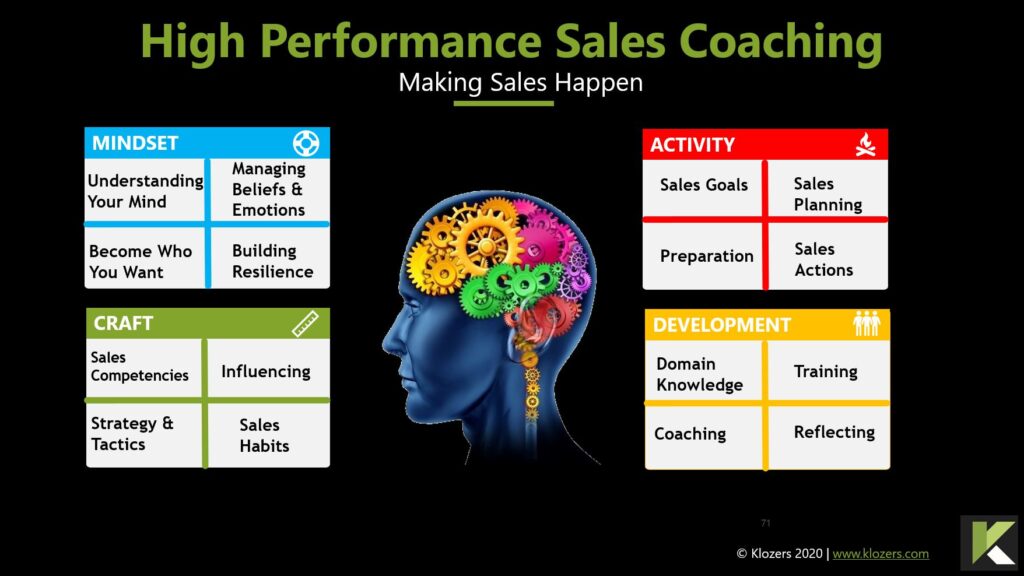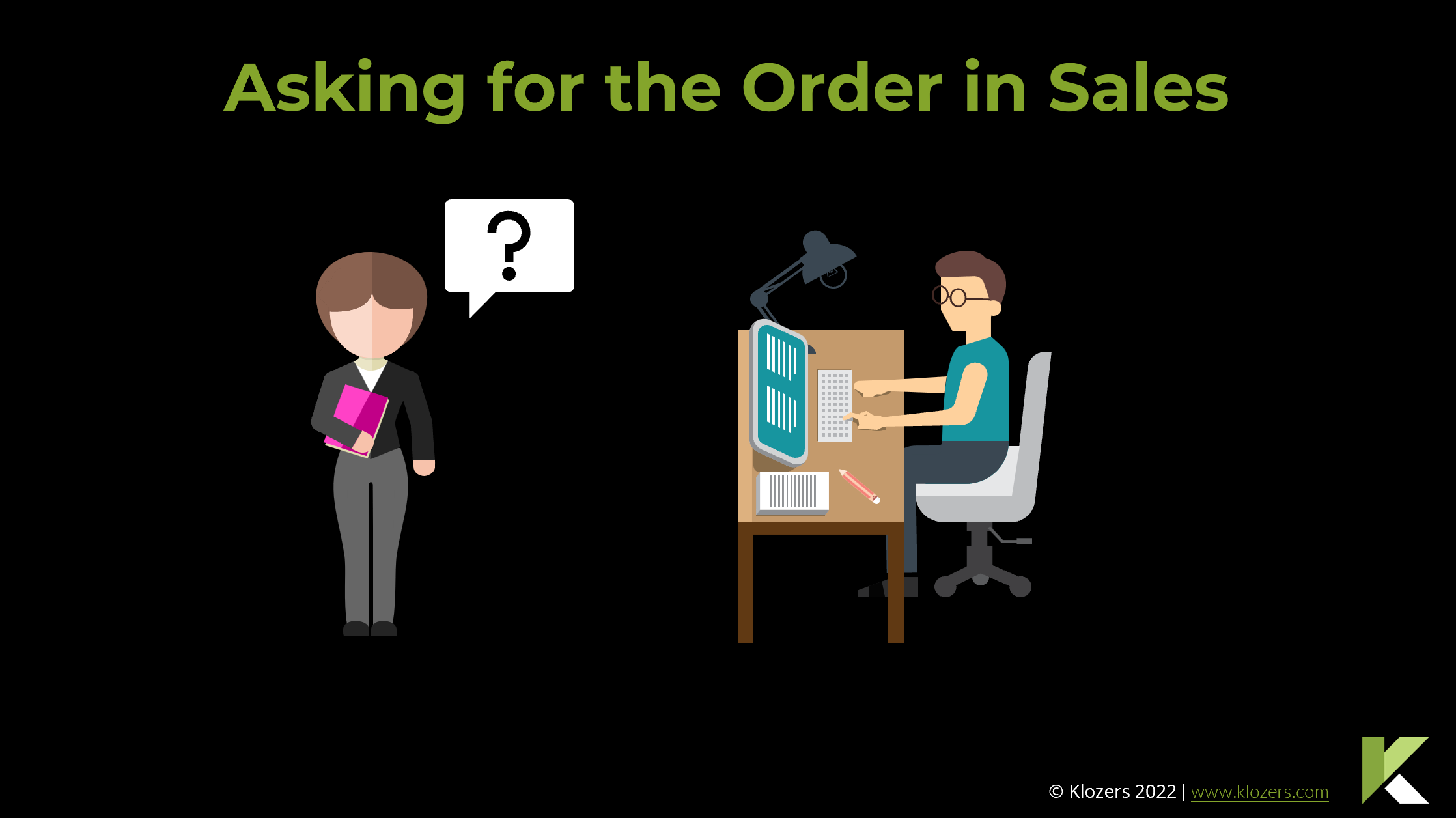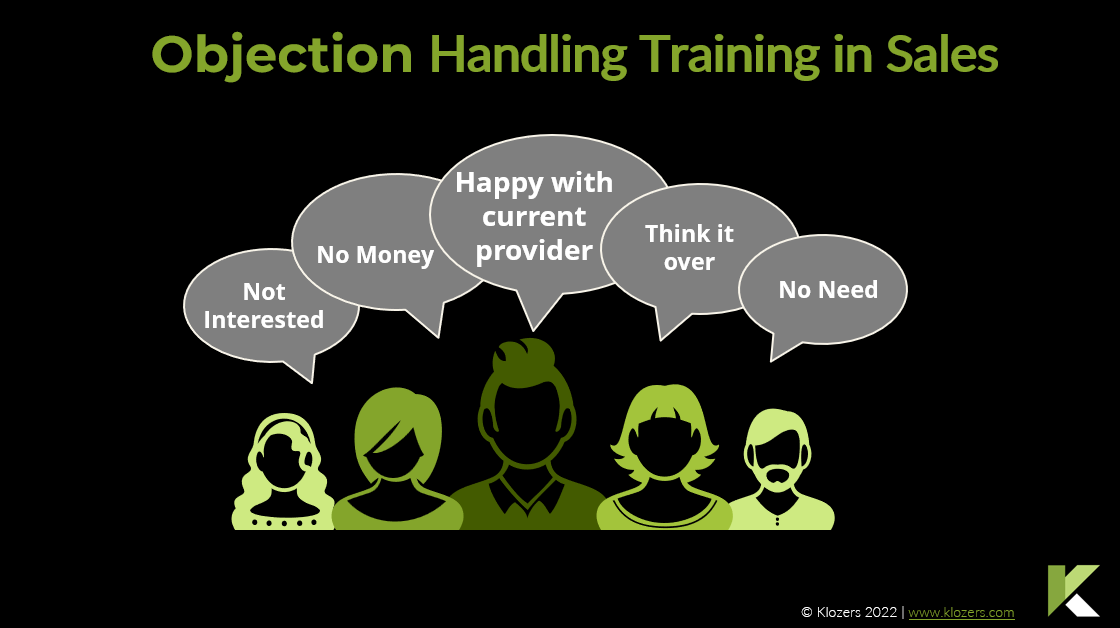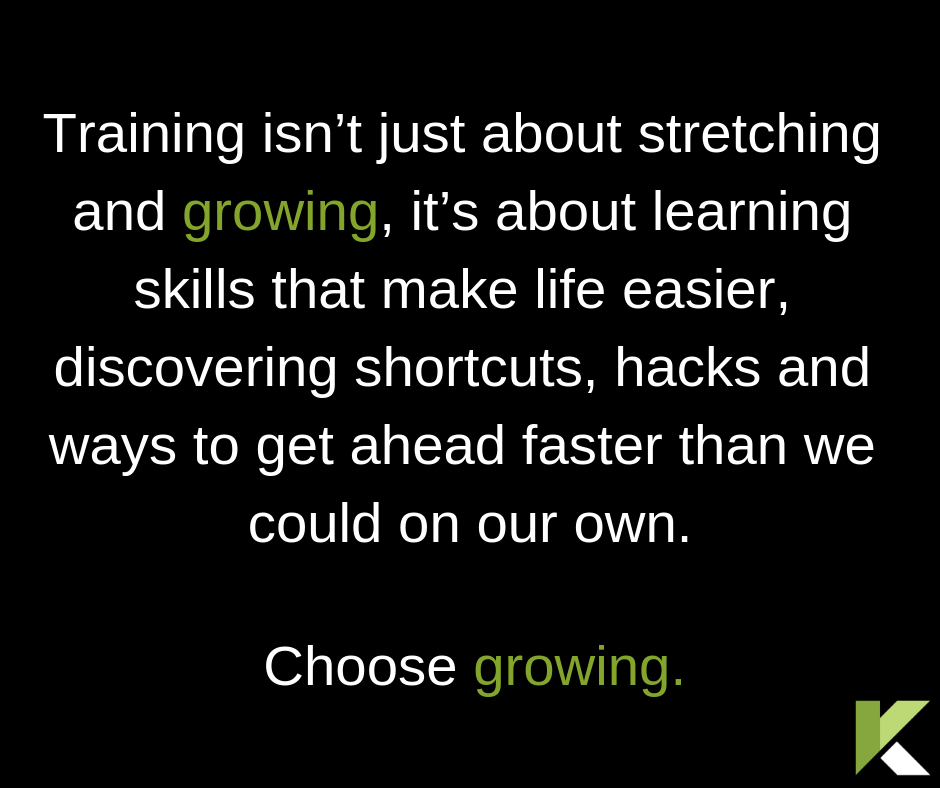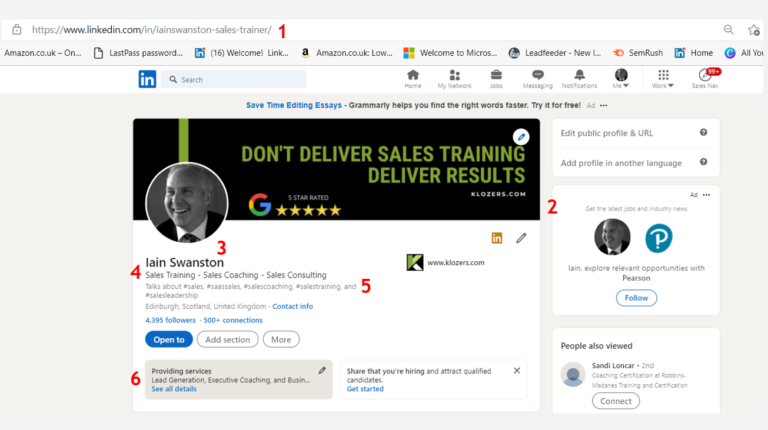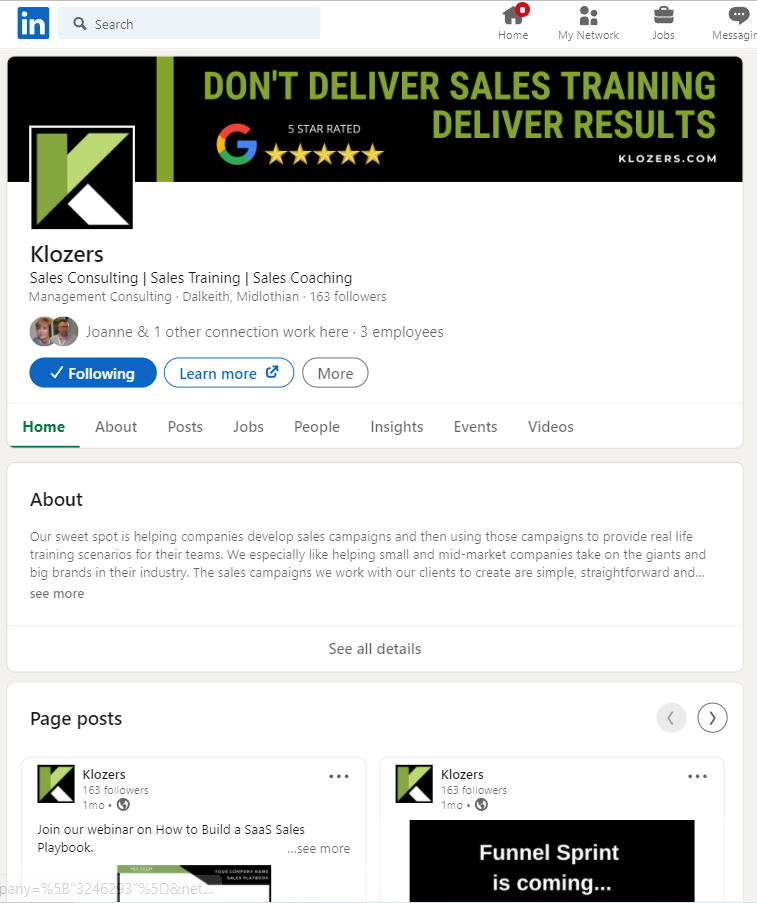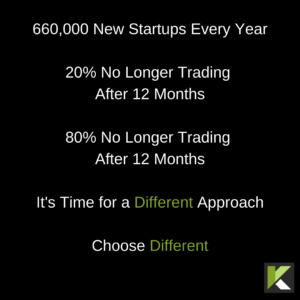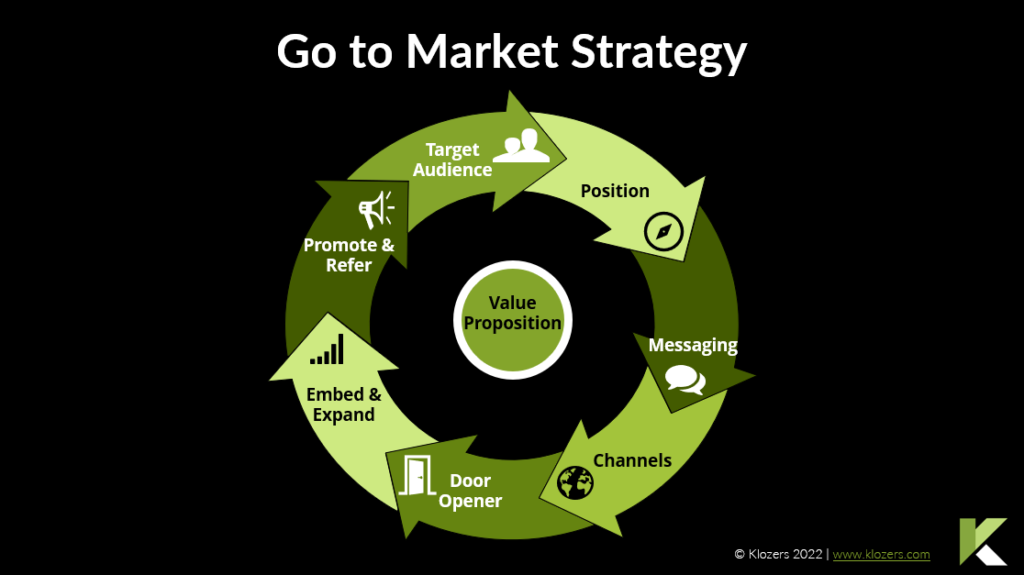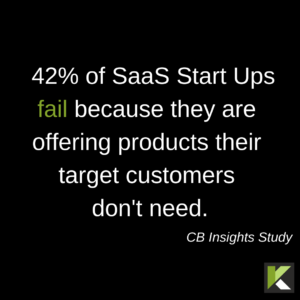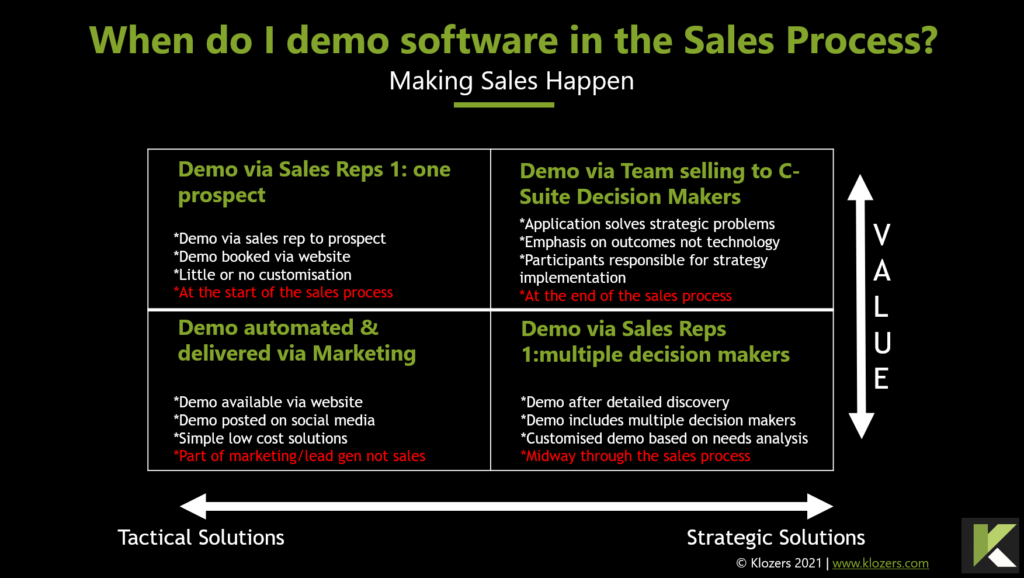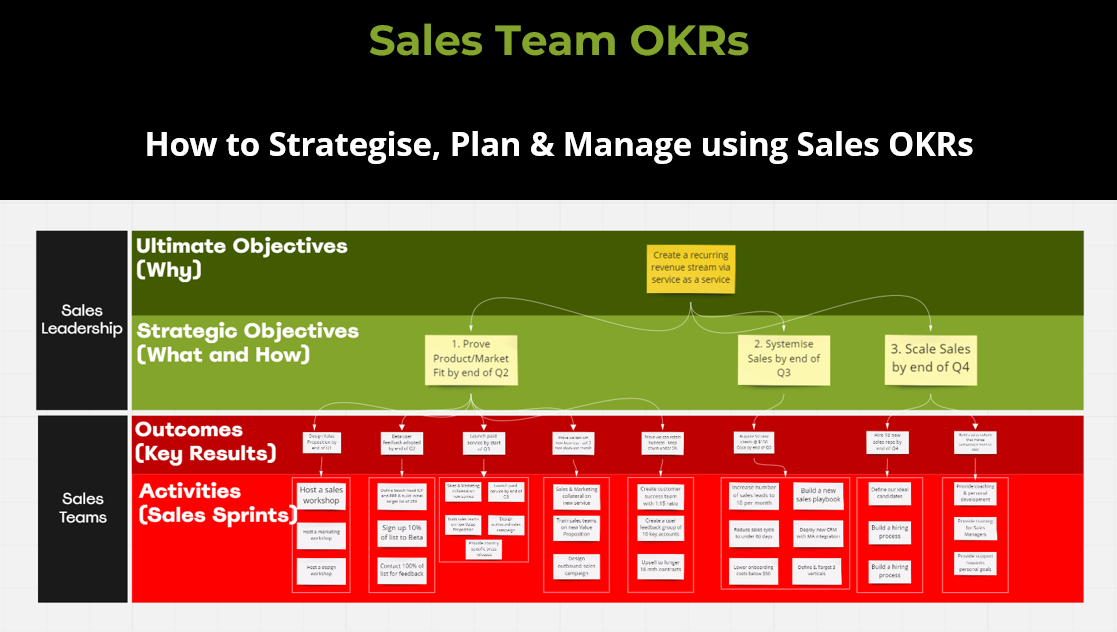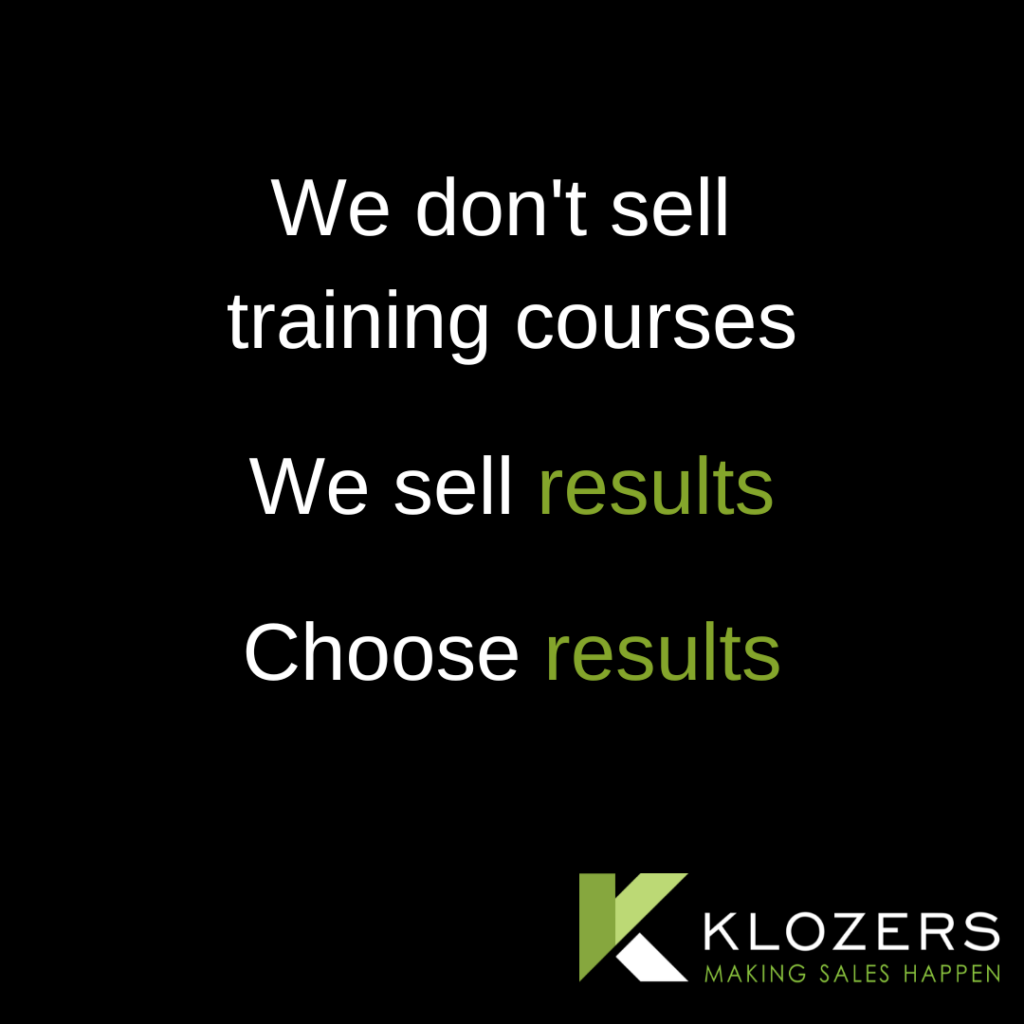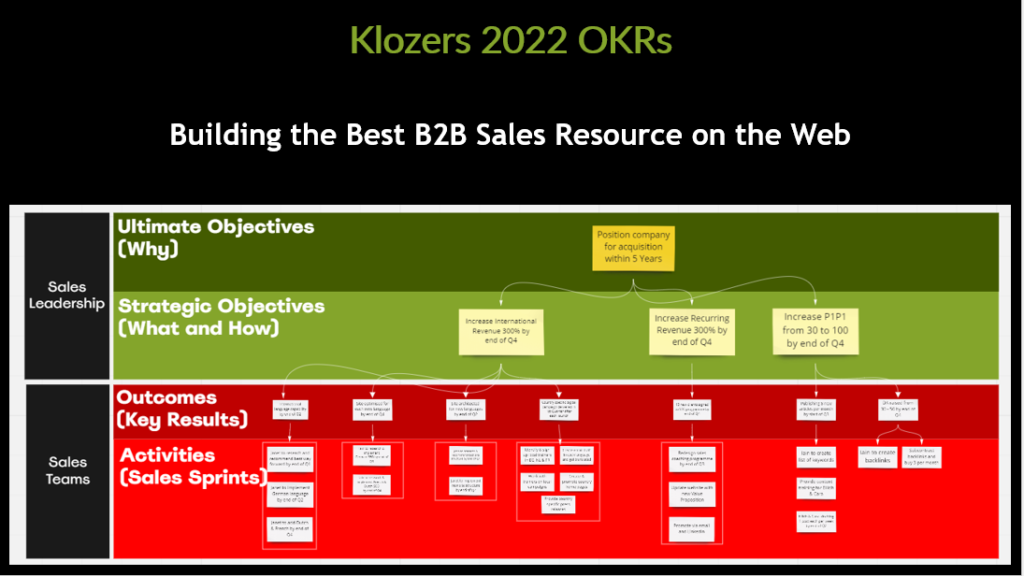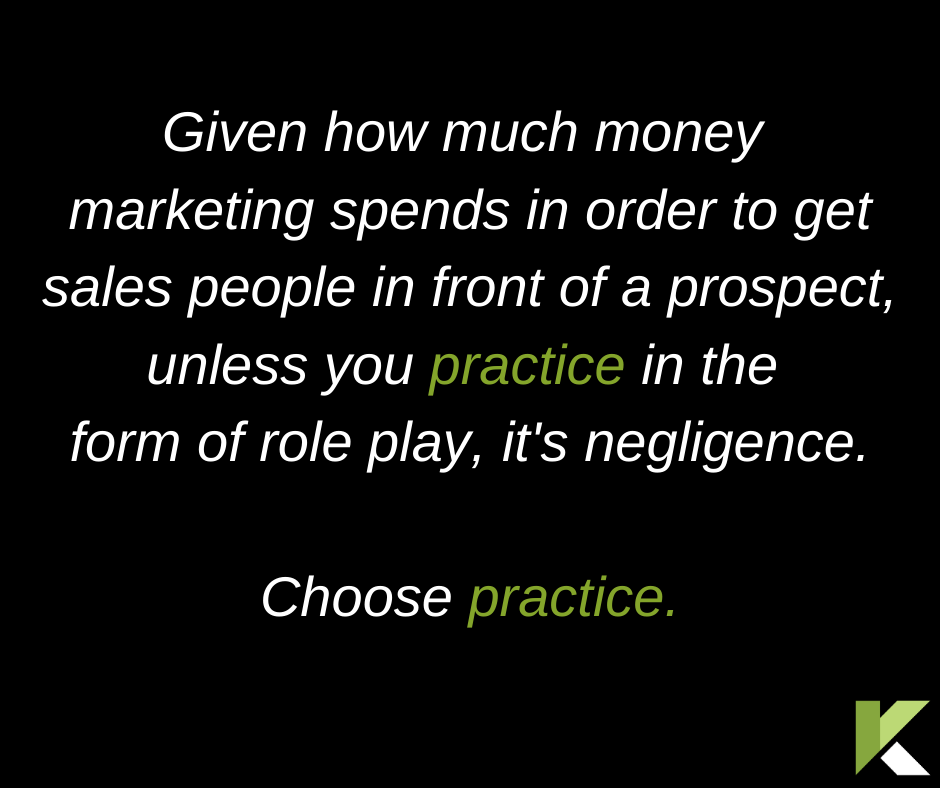Mental Health in Sales FREE Training
Mental Health in Sales - Top Question from Google
How stressful is a sales job?
Here’s the short answer:
Sales can be stressful due to pressure, rejection, and long hours. However, it offers high earning potential, accomplishment, variety, and personal development. Whether it suits you depends on your personality and stress tolerance.
In this article we will cover...
There’s a new way to deliver sales growth…
Don’t buy Sales Training until you’ve watched this video…
1. The Hidden Toll - Why Mental Health Matters
The fast-paced, high-pressure world of sales can take a significant toll on mental health. While the pursuit of success and exceeding quotas can be motivating, the relentless pursuit of performance can often come at a cost.
Statistics paint a concerning picture:
- 42% of sales professionals experience symptoms of anxiety and 36% experience symptoms of depression, according to the National Alliance on Mental Illness (NAMI) https://www.nami.org/Home. This is significantly higher than the national average of adults experiencing anxiety (31.1%) and depression (8.4%) in the past year according to the National Institute of Mental Health https://www.nimh.nih.gov/health/statistics.
- Chronic stress, a common experience in sales, can lead to decreased motivation, cognitive decline, and increased vulnerability to mental health issues, according to a study published in the Journal of Personality and Social Psychology https://www.frontiersin.org/journals/psychology/articles/10.3389/fpsyg.2018.01702/full.
These statistics illustrate the hidden toll that the demands of sales can take on mental wellbeing. Ignoring these concerns can have detrimental consequences, not only for individual salespeople but also for the entire organization.
2. The Unique Challenges of Sales & Mental Wellbeing
Sales professionals face a unique set of challenges that contribute to elevated stress and risk factors for mental health issues compared to other professions. Here are some key factors:
- Pressure to Perform: Sales are often commission-based, creating significant pressure to meet or exceed individual quotas. This constant pressure to perform can lead to anxiety, burnout, and feelings of inadequacy if they miss their sales goals.
- Rejection Sensitivity: Sales involves frequent customer rejection, which can be emotionally draining and impact your self-esteem. A study published in the Journal of Personality and Social Psychology found that salespeople experience higher levels of rejection sensitivity compared to individuals in other professions [https://psycnet.apa.org/record/2010-18724-001].
- Unpredictable Work Schedules: Many sales roles require long hours, travel, and unpredictable schedules. This work-life imbalance can disrupt sleep patterns, create difficulty maintaining healthy habits, and contribute to feelings of isolation and loneliness.
- Highly Competitive Environment: The competitive nature of the sales industry can breed feelings of inadequacy, envy, and imposter syndrome, further contributing to stress and anxiety.
By understanding these unique challenges, organizations and individuals can prioritize mental health support and create a more supportive work environment for sales professionals.
3. The Impact of Poor Mental Health on Sales Performance
The negative impact of poor mental health on sales performance is well-documented and can have significant consequences for both individual salespeople and organizations. Here’s a breakdown of some key effects:
- Decreased Productivity: A study published in the Journal of Occupational and Environmental Medicine found that employees experiencing symptoms of depression are 37% less productive than their healthy counterparts. This translates to decreased sales calls, missed opportunities, and lower overall revenue generation.
- Increased Absenteeism and Turnover: Mental health issues can lead to increased absenteeism and employee turnover, further disrupting team dynamics and impacting overall sales performance. A 2018 report by the National Alliance on Mental Illness (NAMI) estimated that depression alone costs U.S. employers $170 billion annually due to absenteeism, presenteeism (reduced productivity while at work), and medical expense.
- Diminished Decision-Making: Chronic stress and anxiety associated with poor mental health can impair cognitive function and decision-making abilities. A study published in the journal Nature Reviews Neuroscience found that stress can lead to impaired judgment, reduced creativity, and difficulty focusing, all of which can negatively impact sales strategies and negotiations.
These detrimental effects highlight the importance of prioritizing mental health support within sales teams. By creating a culture of well-being and offering resources and support systems, organizations can empower their salespeople to thrive and improve their performance.
4. Building Resilience: Strategies for Salespeople
The demanding nature of sales can undoubtedly test mental resilience. Fortunately, by developing coping mechanisms and adopting healthy habits, salespeople can learn to thrive in a high-pressure environment. Here are some key strategies:
1. Cultivate a Growth Mindset: Embrace challenges as opportunities to learn and grow. A study published in the Journal of Personality and Social Psychology found that individuals with a growth mindset demonstrate greater resilience in the face of setbacks and are more likely to persist towards achieving their goals.
2. Practice Mindfulness and Stress Management: Techniques like meditation, deep breathing exercises, and regular physical activity can effectively reduce stress and improve emotional regulation. A 2017 meta-analysis published in the Journal of the American College of Cardiology found that mindfulness-based interventions can significantly reduce stress, anxiety, and depression.
3. Seek Social Support: Building strong relationships with colleagues, friends, and family can provide invaluable support and a sense of belonging. A study published in the American Journal of Public Health found that individuals with strong social networks experience lower levels of depression and anxiety.
4. Celebrate Wins and Focus on Progress: Acknowledge and celebrate even small victories to maintain motivation and build confidence. Focusing on progress, not just the end goal, helps maintain a positive outlook and fosters resilience in the face of challenges.
5. Prioritize Self-Care: Make time for activities that promote relaxation and well-being, such as hobbies, spending time in nature, or getting enough sleep. Prioritizing self-care helps manage stress and prevent burnout, leading to increased resilience and overall well-being.
By adopting these strategies, salespeople can cultivate mental resilience and navigate the challenges of their profession with greater confidence and well-being. However, if in doubt please seek professional help here https://www.wellityglobal.com
5. Creating a Supportive Sales Culture
Beyond individual strategies, building and maintaining a supportive sales culture is crucial for promoting mental well-being and optimizing team performance. Here’s how organizations can create a more positive and empowering environment for their salespeople:
- Open Communication and Feedback: Encourage open communication and regular feedback sessions. This allows salespeople to voice concerns, receive constructive criticism in a safe space, and feel supported by management.
- Focus on Collaboration: Promote collaboration over cutthroat competition. Encourage knowledge sharing, team problem-solving, and celebrate collective wins. This fosters a sense of camaraderie and reduces feelings of isolation.
- Work-Life Balance: Implement flexible work arrangements and discourage practices that lead to burnout, such as excessive overtime or constant after-hours communication.
- Recognition and Appreciation: Recognize and celebrate individual and team achievements. Public acknowledgement of successes reinforces positive behaviors and motivates continued effort.
- Mental Health Resources: Provide access to mental health resources such as Employee Assistance Programs (EAPs) or online resources on stress management and mental well-being.
- Destigmatize Seeking Help: Normalize conversations about mental health and encourage open communication about challenges. This reduces stigma and creates a safe space for salespeople to seek help when needed.
By prioritizing these elements, organizations can create a supportive sales culture that fosters mental well-being, boosts employee morale, and ultimately, drives improvements in sales performance.
6. Benefits of Prioritising Mental Health in Sales
Investing in the mental well-being of your sales team isn’t just the humane thing to do, it’s a strategic decision with demonstrably positive outcomes for both employees and the organization. Here’s how prioritizing mental health in sales can benefit your company:
- Enhanced Sales Performance: Studies have shown a clear link between mental well-being and sales success. A happier, less stressed salesforce is more productive, resilient, and capable of handling rejection. A study by the American Psychological Association (APA) found that employees who report higher levels of well-being are significantly more likely to be high performers [https://www.apa.org/].
- Reduced Absenteeism and Turnover: Mental health issues can lead to increased absences and employee churn. By addressing these concerns, companies can experience significant cost savings and maintain a stable, experienced sales team. A 2020 report by the World Health Organization (WHO) estimates that depression and anxiety cost the global economy $1 trillion in lost productivity each year [https://www.who.int/news-room/fact-sheets/detail/depression].
- Improved Decision-Making: Chronic stress and anxiety can negatively impact cognitive function. By prioritizing mental health, you empower your salespeople to make sound decisions, develop effective sales strategies, and ultimately close more deals.
- Enhanced Customer Relationships: A happier, more well-balanced salesperson is more likely to project positive energy and build rapport with customers. This fosters trust, strengthens relationships, and increases customer satisfaction.
- Stronger Employer Brand: Companies that prioritize employee well-being attract and retain top talent. By fostering a supportive environment, you build a positive employer brand that makes your organization more competitive in the talent marketplace.
These benefits highlight the strategic value of prioritizing mental health in sales. By investing in the well-being of your salespeople, you’re not just doing the right thing; you’re also creating a high-performing, successful sales team.
7. Getting Help: Resources for Sales Professionals
Prioritizing mental health is key to success in sales. If you’re struggling, know that you’re not alone. Numerous resources exist to support sales professionals across the globe.
For Sales Professionals in the UK:
- Mind: A leading mental health charity offering information and support services: https://www.mind.org.uk/
- The Samaritans: Provides 24/7 confidential emotional support via phone, email, or text: https://www.samaritans.org/about-samaritans/
- The Chartered Institute of Personnel and Development (CIPD): Offers resources and guidance on workplace mental health for both employees and employers: https://www.cipd.org/en/
- Business Partners Online: Provides free and confidential mental health support services specifically for small business owners and self-employed individuals: https://www.nerdwallet.com/article/small-business/how-to-find-a-business-partner-online
For Sales Professionals in the US:
- National Alliance on Mental Illness (NAMI): A national organization offering support groups, educational resources, and advocacy for mental health: https://www.nami.org/Home
- National Institute of Mental Health (NIMH): Provides mental health information and resources, including a treatment locator tool: https://www.nimh.nih.gov/
- The Jed Foundation: Focuses on mental health resources and support specifically for teenagers and young adults, including those entering the workforce: https://jedfoundation.org/
- The Trevor Project: Provides crisis intervention and suicide prevention services specifically for LGBTQ+ youth, a demographic with higher rates of mental health concerns: https://www.thetrevorproject.org/
For Sales Professionals in Australia:
- Beyond Blue: A national organization providing information and support services for depression and anxiety: https://www.beyondblue.org.au/about-us/contact-us
- Lifeline: Offers 24/7 confidential support for anyone experiencing emotional distress: https://www.lifeline.org.au/131114/
- Headspace: Provides mental health services and resources specifically for young people aged 12-25: https://headspace.org.au/headspace-centres/
- Black Dog Institute: Focuses on mental health research and education, with resources tailored for workplaces: https://www.blackdoginstitute.org.au/
Additional Resources:
- Headspace National Support Line (Australia): 1300 22 4636
- National Suicide Prevention Lifeline (US): 988
- Samaritans 24/7 Helpline (UK): 116 123
In addition to these resources, many Employee Assistance Programs (EAPs) offered by employers can provide confidential counseling and support services. Don’t hesitate to reach out to your HR department to see what resources are available to you.
Remember, seeking help is a sign of strength, not weakness. Taking care of your mental well-being is essential for success in both your personal and professional life.
8. FREE TRAINING
As part of our giving back Klozers are proud to offer free sales training for the B2B sales community. Course details:
Building a Sales Mindset & Mastering the Pressure Cooker of Sales
Learning Objectives:
By the end of your training session, your sales team will be able to:
- Identify the unique stressors faced by B2B sales professionals.
- Understand the negative impact of chronic stress on performance and health.
- Apply five practical strategies to manage stress, anxiety, and pressure.
- Develop a personalized plan to prioritize your mental well-being.
Course Duration – 90 minutes
Delivery – Live Online
To Request a FREE Course – >>>Contact Us Here<<<
“A fantastic learning experience”
Amanda – Account Manager





